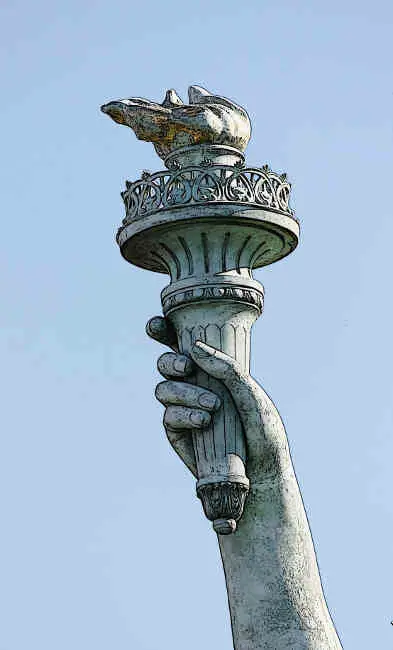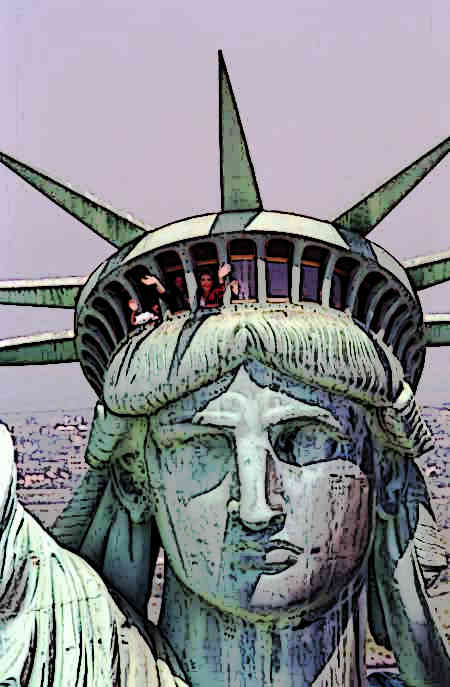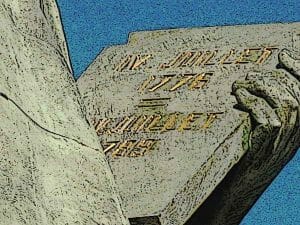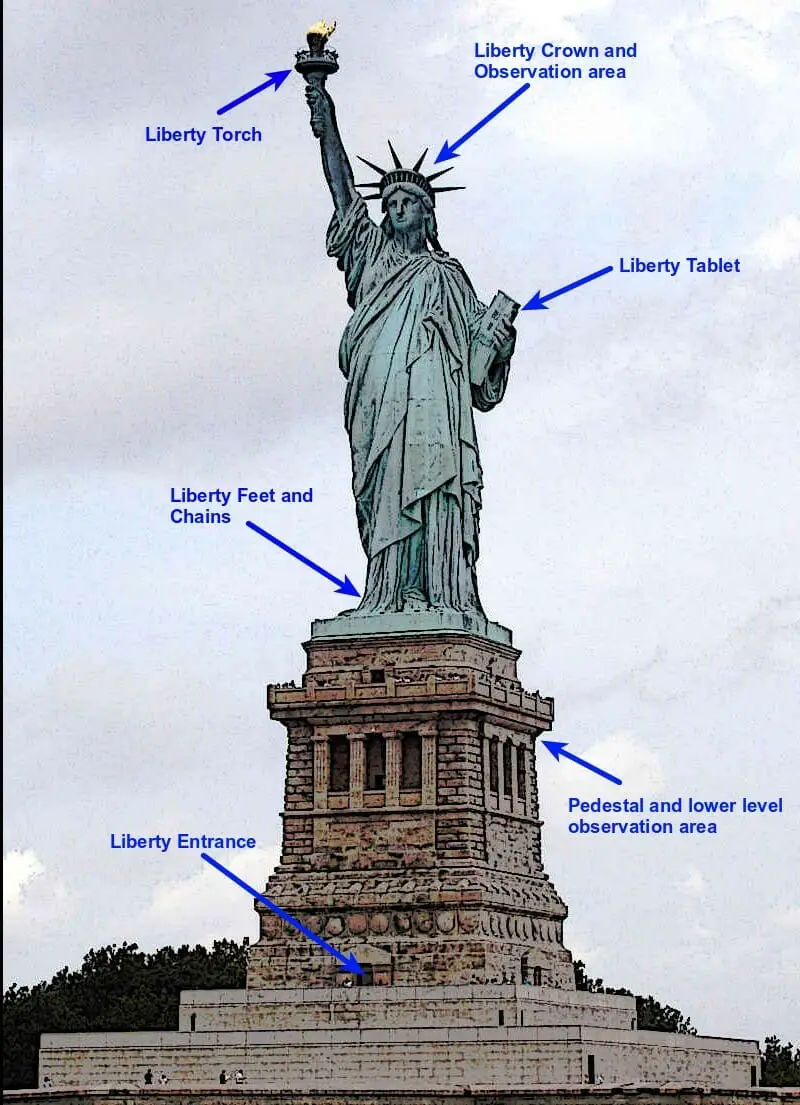Famous Parts Statue of Liberty
The Statue of Liberty is not only a powerful symbol of freedom but also a marvel of design and craftsmanship. Each part of the statue — from the crown and torch to the tablet and broken chains — holds deep meaning and contributes to its iconic status. Understanding the significance and details of these parts offers a deeper appreciation of this world-famous monument.
It was erected and dedicated in 1886. The key sculptor behind the creation of the statue was Frederic Auguste Bartholdi. Bartholdi designed and created the statue so that each notable part of the statue signifies some meaning.
Here’s a backlinking sentence you can use:
Explore more about Lady Liberty and her powerful symbolism on the main Statue of Liberty page.
Main parts of the Statue of Liberty
Following is a look at the main parts of the Statue of Liberty.
1. The Torch
The original torch of the statue was made from copper and covered with a sheet of gold.
The gold was used to signify the proverbial fire on the torch. The torch weighs 3600 pounds. It is currently stored in the Statue of Liberty Museum and in its place, a replica torch has been installed.
Before 1916, it was possible to access a balcony area located around the torch. But since 1916, public access to the sport has been banned.
The torch itself signifies enlightenment and partly refers to the way Prometheus brought light, fire and enlightenment to the mythical Greeks.

2. Statue of liberty Parts – The Crown
The crown of the Statue of Liberty is one of its most iconic features.
The crown features seven spikes as well as an actual observation deck which visitors can reach.
To reach the observation deck, visitors have to climb 345 stairs. Visitors get a panoramic view of the New York Harbor from the deck.
The seven spikes of the crown are said to represent the seven oceans and the seven continents.
The spikes also represent the rays of the sun, as a statement that the statue enlightens the whole world.

3. The Feet
The feet of the statue of liberty are a rather neglected part of the statue. Nonetheless, it is as important and symbolic as the rest of the statue of liberty parts.
At the statues feet lay a broken shackle and chains. These signify the fact that liberty has overcome its obstacles, such as slavery in the United States, and is finally striding forward.
4. The Tablet
In one hand, the Statue of Liberty holds a torch. In the other hand, it bears a large tablet. This tablet is 23 feet 7 inches in length, 13 feet 7 inches in width and 2 feet in thickness.
The words JULY IV MDCCLXXVI are inscribed on the tablet.
These Roman numerals translate into July 4, 1776, signifying the date of the signing of Declaration of Independence.
Thus the statue is an embodiment of the independence of the United States as well.

5. The Pedestal
The Statue of Liberty stands on top of a large pedestal. The pedestal is 89 feet in height. It embodies features of the classic European architecture and evokes the feeling of a castle or fortified structure.
The pedestal is identical on all four sides and is designed like a building which you can enter.
Inside the pedestal is a museum and on its top is a balcony or observation area which visitors can reach.
It is on top of this giant pedestal that the Statue of Liberty stands.
We hope you enjoyed this article about the statute of liberty and the statute of liberty parts, if you would like to learn even more about the statue of liberty please see other articles by clicking the links below.
What are the main parts of the Statue of Liberty?
The main parts include the crown, torch, tablet, robe, and broken chains at her feet.
What does the torch of the Statue of Liberty represent?
The torch represents enlightenment and the path to liberty, lighting the way to freedom.
How many spikes are on the Statue of Liberty’s crown and what do they represent?
There are seven spikes on the crown, symbolizing the seven seas and continents of the world.
What does the tablet in the Statue of Liberty’s left hand represent?
The tablet bears the date of the American Declaration of Independence, July 4, 1776.
Why are there broken chains at the feet of the Statue of Liberty?
The broken chains symbolize the abolition of oppression and the triumph of freedom.
- Statue of Liberty
- Astounding Statue of Liberty Conspiracies That Might Just Be True”
- Famous Parts Statue of Liberty
- Liberty Island: A Historic 12-Acre Site in New York Harbor
- Statue of Liberty 33 Amazing Facts
- Statue of Liberty Construction: The Story Behind Building ‘Lady Liberty
- Statue of Liberty Famous People
- Statue of Liberty Timeline
- Statue of Liberty Torch – 145 Year History
- Statue of Liberty: Amazing Facts and History
- The Crown of the Statue of Liberty: Symbolism and Secrets

